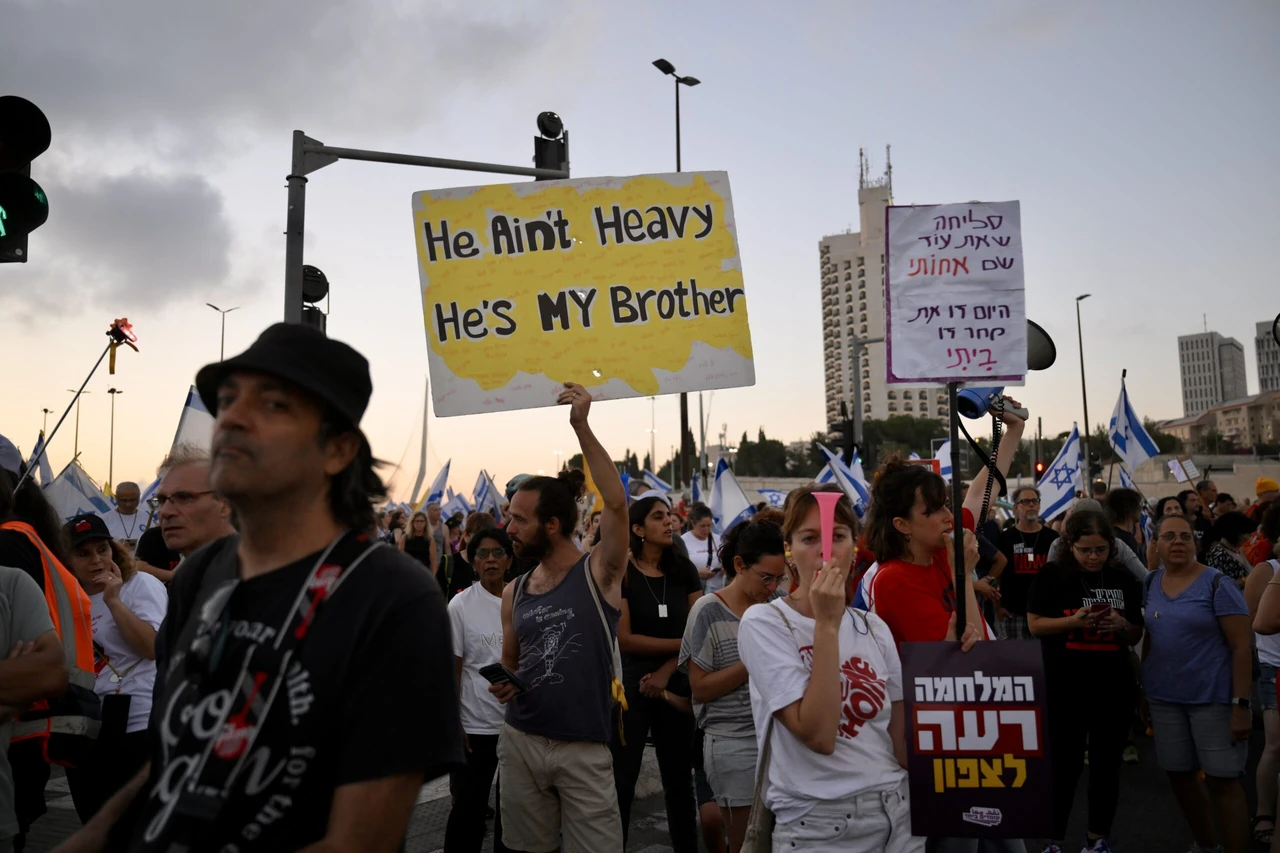Israeli protesters block Tel Aviv highway, demand prisoner swap deal
 Demonstration in West Jerusalem demanding government resignation and prisoner swap deal, West Jerusalem, July 13, 2024 (AA Photo)
Demonstration in West Jerusalem demanding government resignation and prisoner swap deal, West Jerusalem, July 13, 2024 (AA Photo)
Israeli protesters, including relatives of captives held in Gaza, blocked a main highway in Tel Aviv on Tuesday to demand a prisoner swap deal with Palestinians.
Protesters blocked Ayalon Highway in Tel Aviv, raising banners calling on the government of Prime Minister Benjamin Netanyahu to reach a prisoner swap deal with Hamas, The Times of Israel reported.
“There is no reckless agreement, only abandonment,” and “Netanyahu is burying the hostages,” read the banners waved by protesters.
The Israeli opposition and families of the hostages accuse the Netanyahu government of systematically sabotaging efforts to reach a swap deal with Hamas to avoid the collapse of the ruling coalition.
On Monday evening, an Israeli negotiating team returned from the Egyptian capital, Cairo, without achieving any breakthrough in the Gaza cease-fire and prisoner swap negotiations.
According to the Israeli public broadcaster KAN, the delegation informed the political leadership that the chances of reaching a deal with Hamas “were not high.”
For months, the U.S., Qatar and Egypt have been trying to reach an agreement between Israel and Hamas to ensure a prisoner exchange and a cease-fire and allow humanitarian aid to enter Gaza.
But mediation efforts have been stalled because of Netanyahu’s refusal to meet Hamas’ demands to stop the war.
Israel has continued its brutal offensive on the Gaza Strip following a Hamas attack last Oct. 7, despite a U.N. Security Council resolution calling for an immediate cease-fire.
The onslaught has resulted in over 40,400 Palestinian deaths, mostly women and children, and over 93,500 injuries, according to local health authorities.
An ongoing blockade of Gaza has led to severe shortages of food, clean water and medicine, leaving much of the region in ruins.
Israel faces accusations of genocide at the International Court of Justice, which has ordered a halt to military operations in the southern city of Rafah, where over one million Palestinians had sought refuge before the area was invaded on May 6.



